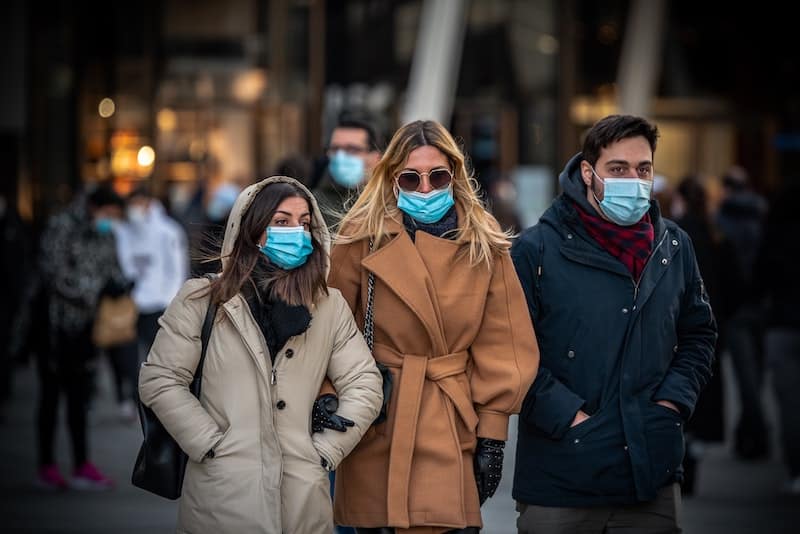Travelling to Canada during COVID
Last updated December 17, 2021
The Government of Canada announced additional border measures to reduce the risk of the importation and transmission of COVID-19 and its variants in Canada related to international travel.
Vaccination is required for travel within and out of Canada. A valid COVID-19 molecular test is no longer accepted as an alternative to vaccination unless travellers are eligible for one of the limited exemptions, such as a medical inability to be vaccinated. Travellers should contact their airline or railway company to obtain the necessary form and submit it in accordance with their carrier’s approval process.
Anyone now coming into Canada from a country aside from the United States would have to be tested on arrival and must isolate and await their results.
While Canada limits the admission of most foreign people for non-essential land, sea, and air travel, fully vaccinated United States citizens and lawful permanent residents travelling for non-essential travel may be able to enter Canada. To learn more about entrance limitations, please visit the Canadian Border Services Agency (CBSA) website here.
Travel to Canada during COVID has seen a major decline beginning in March 2020 and has slowly increased over the last few months.
Who can come to Canada
- Canadian citizens (including dual citizens), people registered under the Indian Act, permanent residents of Canada, or protected persons (refugee status) are allowed to enter Canada.
- Fully vaccinated foreign nationals may be allowed enter Canada for discretionary travel.
All travelers must use the ArriveCAN system to enter their traveller information, including proof of vaccination, before arriving in Canada. For additional information on travel for fully vaccinated U.S. citizens and lawful permanent residents, please click here.

Travelling across the border by land
Land borders are operating at reduced capacity and with limited hours. Visit CBP and CBSA for details on land border crossings.
- All travelers must use the ArriveCAN system to enter their traveler information, including proof of vaccination, before arriving in Canada.
- Stricter rules and additional entry conditions impact travelers transiting through Canada to or from Alaska for a non-discretionary purpose. Full information is available in the CBSA News release.
Travelling across the border through air
- All travelers must use the ArriveCAN system to enter their traveler information, including proof of vaccination and quarantine plans, before arriving in Canada.
Exemptions for fully vaccinated travellers
If you qualify for the fully vaccinated traveller exemption you are exempt from:
- quarantine
- Day-8 testing requirement
Regardless of citizenship, all travellers must meet and follow all of the same requirements.
If you provide essential services or already qualify for other exemptions from quarantine and Day-8 testing, you don’t need to be considered a fully vaccinated traveller to enter Canada. If you think you qualify for other exemptions: find out if your travel is exempt.
Arriving in Canada
When you arrive in Canada by air, land or sea, border services will assess your health before you leave the point of entry. You may be denied entry if you have symptoms of Covid-19. People entering Canada must follow the regulations as per the emergency orders under the Quarantine Act.
Starting October 30, 2021: To depart from Canadian airports or travel on VIA Rail and Rocky Mountaineer trains, travellers will need to qualify as a fully vaccinated traveller. This will also apply to travellers on cruise ships when the cruise season commences in 2022.
All travellers 5 years of age or older, regardless of citizenship, must provide proof of a negative COVID-19 test result. All travellers 5 years of age or older, regardless of citizenship, must provide proof of a COVID-19 test result to enter Canada.
If you are returning to Canada, it is important to regularly check federal and provincial public health authorities’ travel requirements.
The Government of Canada announced that starting February 22, anyone arriving in Canada by land must show a negative Covid-19 test taken within 72 hours before seeking entry to the country. Travelers that cross into Canada at a land border without a negative test could be fined up to $3,000 Canadian dollars.

COVID travel restrictions apply to all travellers within Canada and travellers coming into Canada. If you have a criminal record and are travelling to Canada during COVID, you may also need a waiver. Click here to find out if you need to apply for a waiver. Now would be the best time to start your application as it can take approximately 1 year for the Government of Canada to approve your application. Currently, they are not facing any delays in the processing of waiver applications.
While essential services remain available throughout the country, certain provinces have imposed limitations restricting discretionary activities such as visits to restaurants, bars, gyms, and retail establishments to those who can present proof of their COVID-19 vaccination.
Certain provinces prohibit large gatherings, and other educational institutions operate virtually or with limited in-class time.
Religious services must adhere to public health regulations and provincial restrictions on gathering size. Consult the following provincial websites for the most up-to-date information:
- Alberta
- British Columbia
- Manitoba
- New Brunswick
- Newfoundland and Labrador
- Nova Scotia
- Northwest Territories
- Nunavut
- Ontario
- Prince Edward Island
- Quebec
- Saskatchewan
- Yukon

Travelling to Canada with a criminal record
COVID travel restrictions apply to all travellers within Canada and travellers coming into Canada. If you have a criminal record and are travelling to Canada during COVID, you may also need a waiver. Currently, the Government of Canada has resumed the processing of applications and are not facing delays. However, delays may occur when a person is compiling their application, as many courts, police, and other bodies (including fingerprinting agencies) across the US are still under emergency orders, reduced operations or operating to deal with urgent and essential matters. It is important to note that State and local governments may have varied measures in place regarding public health policies and economic responses, which will affect the administration of public services in those areas.
Once a waiver application has been granted, a person may fall into any of the COVID travel categories, which will determine their eligibility to enter Canada.
There are many factors that the Canada Border Services Agency (CBSA) uses in determining if you are permitted to enter Canada. It is important to recognize that border services officer at the port of entry will make the final decision in whether or not you may enter Canada, based on the information presented to them at the time of entry into Canada.
If you are planning to travel to Canada, with a criminal record, contact us today for a free consultation.
Questions? Contact us for more information.
Call us Toll-Free at 1-866-972-7366 or leave us a note.
A Client Advisor will respond to your message within one business day.